Know Your Rights
A tenant has a legal right to “peace and quiet enjoyment” in the place they live. This means that you have the right to not be unreasonably bothered or disturbed by your landlord. Harassment is your landlord (or someone they control) doing or not doing something on purpose to upset your peace and quiet in your home. Harassment can include many things, like threats, verbal abuse, refusing to make needed repairs, and other things defined by Los Angeles’ Tenant Anti-Harassment law (which some people call TAHO).
The City of Los Angeles’ Tenant Anti-Harassment Ordinance (TAHO) gives you two rights:
- Right One: Sue your landlord.
- You can sue your landlord and ask the court to make them stop harassing you and pay you money for the harm they caused. You can sue your landlord in small claims court or you can find a lawyer to help you sue your landlord outside of small claims court. In small claims court, no one can use a lawyer and the maximum amount of money the court can give you is $10,000.
- If you win your case, the court can give you:
- Money to pay for the harm you suffered. You must have proof to show the court how you were harmed and how much money it cost. For example, if you paid for a repair the landlord refused to make, you would need to show a receipt for the money you paid for the repair.
- A decrease in the amount of rent you owe to the landlord based on the decrease in housing services.
- A penalty of up to $10,000 for each time the Landlord broke the tenant anti-harassment law, depending on how bad the situation was. If you are disabled or older than 65, you could receive an additional $5,000 for each time the landlord broke the law.
- Relocation expenses if you moved because of the harassment.
- A court order that the landlord stop harassing you; and
- Anything else the court thinks is appropriate in your case.
- LAFLA has information to help tenants suing their landlords in small claims court. Call (800) 399-4529 or visit https://lafla.org/covid-resources/renters-small-claims/ for more information.
- Right Two: Harassment can be a defense if your landlord sues to evict you. You should tell the court about any harassment by your Landlord to defend yourself in an eviction case. This kind of defense is called an “affirmative defense,” and eviction cases are called “unlawful detainer” cases. You have to bring up all your “affirmative defenses” when you first answer your eviction case. If you get papers for an eviction lawsuit, you should talk to a lawyer as soon as possible. You only have 5 days to answer the lawsuit once you get the eviction lawsuit papers. If you do not answer the lawsuit, you might lose your case automatically (this is called a “default judgment”).
The City of Los Angeles’ laws punish landlords who break the law. If you tell your landlord about these penalties, it might help you get them to stop the harassment.
- First, the City of Los Angeles can bring criminal charges against a landlord for harassing a tenant. The criminal charges can lead to a fine of up to $1,000 per charge, up to 6 months in jail, or both.
- Second, there is a “rent adjustment penalty” for rental units protected by the City’s Rent Stabilization Ordinance (known as “LARSO”). This means that if you leave your unit because of the landlord’s harassment and you bring a successful harassment court case against the landlord, the landlord can only rent out the unit at the same rate they rented it out to you. This helps stop landlords from harassing tenants to get them to move out so they can raise the rent. The landlord would only be able to charge the next tenant the same rent they charged you.
The City of Los Angeles passed a law that makes it illegal for landlords to harass their tenants. All harassment meant to hurt you that doesn’t have a lawful purpose is illegal. The law also gives 16 examples of harassment:
- Reducing or eliminating a housing service required by your lease, a contract, or by law. For example, taking a parking spot included in your lease, shutting off your heat, or removing laundry services.
- Not making needed repairs that are required by law. For example, not fixing the water heater or plumbing.
- Before suing about a repair, you have to give your landlord “notice” (which means you have to tell them) of the needed repair and give them a reasonable amount of time to make the repair. The notice should be in writing, and you should keep a copy for yourself along with proof that it was given to the landlord. A “reasonable” time to make a repair depends on the seriousness of the repair needed. For example, no heat in winter is more urgent than no heat in summer. Two weeks is often a reasonable time for a needed repair.
- The landlord coming into your unit or taking photos of your unit in ways that are unreasonable. Landlords can enter your unit with “reasonable” notice for a reason that is legal, such as to make repairs, or without notice in an emergency. Twenty-four (24) hours is usually considered a reasonable amount of notice to enter your unit. Talk to a lawyer about your situation if your think your landlord entered your unit in way that was not reasonable.
- The landlord using words or body language to threaten to physically hurt you.
- The landlord trying to force you to move out by offering you money.
- Landlords can offer to buy you out of your LARSO unit under the Tenant Buyout Notification Program. Your landlord would need to give you notice about your rights under the law. If they do that, the buyout offer may not be considered harassment.
- The landlord lying to you, misleading you, or hiding important information from you to make you move out.
- The landlord threatening to evict you, including by serving an eviction notice, based on facts the landlord has no reason to think are true.
- You have to win your eviction case or have it dismissed before a landlord is liable for harassment under this provision.
- The landlord threatening to do something or not do something that interferes with your peace and quiet in your home. Or a landlord threatening to do something or not do something that would make the rental unit unlivable.
- The landlord refusing to acknowledge or accept your rent when you pay the way you’re supposed to in your lease or the way you usually pay.
- The landlord asking about your immigration status or the immigration status of your family or roommate. This can include your landlord making you, your family, or a roommate say or prove things about immigration status.
- If you live in subsidized housing like Section 8, the Housing Authority can ask you questions about immigration status and that is not illegal.
- The landlord threatening to give or giving information about your household’s immigration status to anyone.
- The landlord giving information about you or threatening to give information about you to someone in the government to make you move out or because you did a legally protected thing. For example, if your landlord threatens to call child protective services if you don’t stop complaining about bad conditions or if you don’t move out.
- The landlord discriminating against you based on your race, gender, sexual orientation, or something else protected by law.
- You usually have to prove that the landlord discriminated against you because of the protected characteristic. This can be hard to show because it can be hard find proof of why the landlord did what they did.
- The landlord retaliating against you for organizing with other tenants or starting a tenants union.
- The landlord invading your privacy or asking for information that violates your right to privacy. For example: asking about your residency or citizenship status, or for your social security number just to harass you.
- In subsidized housing and some other situations, a landlord may be allowed to ask for your social security number by law. Consult with an attorney to determine if your landlord asking for your social security number was legal.
- Repeatedly doing or not doing things that substantially disrupt your right to peace and quiet in your home or that would likely make someone move out.
Write down everything:
- Write down everything you can about what your landlord is doing wrong. Include dates and the names of anyone else who saw what happened. Keep notes about what you did too, like calling the utility company about a shut-off or telling the landlord/property manager to do something (like make a repair) or to stop doing something (like entering your home without giving notice). Communicate with your landlord in writing so that you have a record of what happened. Email or text messages can be a good way to send these communications. Keep communications with your landlord brief, informative, and formal.
- Keep a log of what happened. For example, “July 15, 2022 – electricity went out at 4 AM. Was off until 10 PM on Sunday. Called DWP and emailed property manager. Wife and neighbor Marty in unit 4C witnessed.”
- Keep Copies of Documents and Communications:
- You want to save everything you can about the harassment you are experiencing. Save text messages/emails with your landlord. If you receive notices from the landlord, or the utility company, or anything in writing about what you are experiencing, keep a copy of it. You will need this information if you file a lawsuit against your landlord to prove what harassment you experienced and the harm you suffered.
Send a formal letter telling your landlord to do something (like make a needed repair) or stop doing something (like harassing you).
- If you landlord is harassing you, send a letter telling them to stop it. Send the letter to the landlord even if it’s a manager harassing you. If you think sending the letter will make things worse, speak with an attorney or tenant organizer first. However, you will need to send a letter and give your landlord a chance to stop after the letter before you sue them. If the landlord stops the harassing behavior within a reasonable time after you send the demand letter, you may not be able to bring a lawsuit against them for the harassment. You should consult with an attorney about your situation before you file a lawsuit.
- File a complaint with the Los Angeles Housing Department (LAHD). LAHD may be able to make your landlord stop the harassment. Even if LAHD cannot help, filing a complaint helps to show that you tried to fix the problem and may also help other tenants. LAHD can be reached by phone at (866) 557-7368 or online at https://housing.lacity.org/residents/file-a-rso-complaint
- Talk to an attorney or think about bringing a small claims case. If you qualify for legal services with LAFLA, LAFLA may be able to help you sue your landlord or help with your small claims case. You can reach LAFLA at (800) 399-4529 or online at www.lafla.org. If LAFLA is unable to help, we can provide you with a list of attorneys who might be able to help you.
Note: The information on this page is about the protections available to tenants who live in the City of Los Angeles. There are similar protections for tenants who live in unincorporated areas of the County of Los Angeles. You can access the County ordinance here. You should talk to a lawyer if you live in an unincorporated area of the County. Although the protections are similar, there are some important differences. To get help, call LAFLA at 800-399-4529, apply for help online, or visit one of our offices.
Resource Library


Tenant Empowerment and Anti-Harassment Project
In 2022, LAFLA and its community partners at the Los Angeles Community Action Network and Strategic Actions for a Just Economy launched the Tenant Empowerment and Anti-Harassment Project (TEAP), which provides wraparound anti-harassment assistance to residents of South Los Angeles and Skid Row. The project leverages the City of Los Angeles’ June 2021 Tenant Anti-Harassment Ordinance (TAHO) to combat eviction, homelessness, and displacement for some of the most vulnerable Angelenos. The project is comprised of legal clinics, workshops, direct limited legal assistance, and full-scope representation. Since TAHO was adopted, LAFLA and its partners have provided the City of Los Angeles Housing Department with guidance surrounding the implementation of its TAHO complaint and investigation process. Now, through TEAP, we are providing increased outreach, publicity, and exposure to raise critical awareness of tenants’ rights under this important new ordinance.

Stay Housed LA County
Legal Aid Foundation of Los Angeles is proud to serve tenants as part of Stay Housed L.A., an initiative to connect tenants with resources about their rights and legal assistance. Tenants who need help can visit www.stayhousedla.org or call (888) 694-0040.

